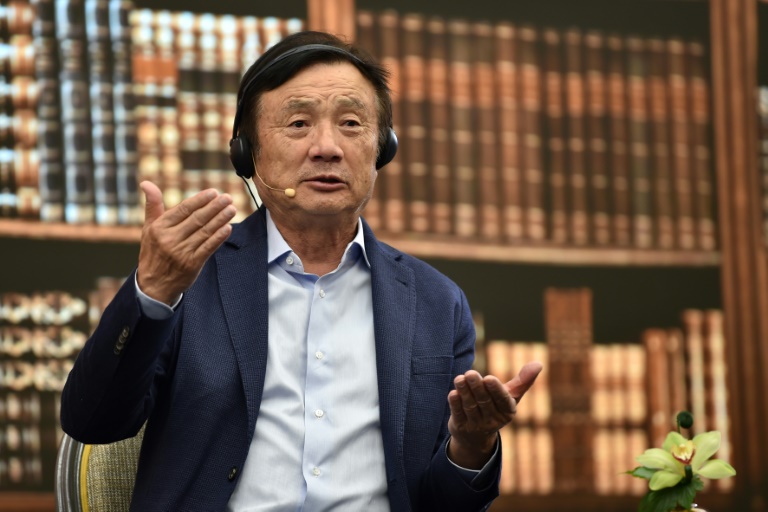
Huawei’s founder said Monday the Chinese telecom giant’s overseas smartphone sales have tumbled since the US last month threatened to blacklist the company, and he warned the embattled firm would slash production to weather the US drive to isolate it.
The announcements by Huawei founder and CEO Ren Zhengfei marked the first clear indication from the company of the impact of the US pressure, which is being applied over concerns in Washington that Huawei is in bed with China’s security apparatus.
Speaking at a panel discussion organised by the company at headquarters in the city of Shenzhen in southern China, Ren was asked if he could confirm media reports citing anonymous sources which said its overseas smartphone sales had fallen by up to 40 percent.
“Yes, (sales) have fallen 40 percent,” said Ren.
He gave no further details on the sales plunge but a Huawei spokeswoman later clarified that he was referring to a 40 percent fall from May to June in the wake of the US blacklist threat.
Ren added, however, that sales growth in China’s domestic market remained “very fast”.
Huawei was the world’s number two smartphone producer last year, ahead of Apple and behind South Korea’s Samsung, as well as the largest provider of telecom networking equipment.
Huawei has said it shipped a total of 206 million smartphones in 2018, about half in China and half overseas.
Ren, 74, said Huawei planned to cut production by $30 billion over the next two years to ride out the storm. He did not specify which lines of business would be hit most.
Huawei earned just over $100 billion in revenue in 2018, so a $30 billion reduction would equate to about 30 percent of last year’s overall business.
But Ren, who compared Huawei to a damaged but still-flying aircraft, added that he expected the company to soon back on track.
“In 2021, we will regain our vitality and (continue to) provide services to human society,” he said.
Grim outlook
Huawei has emerged as a key bone of contention in the wider China-US trade war that has seen tit-for-tat tariffs imposed on hundreds of billions of dollars worth of goods.
President Donald Trump’s administration has essentially banned Huawei from the huge US market.
Last month it also added Huawei to an “entity list” of companies barred from receiving US-made components without permission from Washington, though the company was granted a 90-day reprieve for now.
The US fears that systems built by Huawei could be used by China’s government for espionage via secret security “backdoors” built into telecom networking equipment.
Those fears have revolved in large part around Ren’s background as a former Chinese army engineer, and questions over the privately-held Huawei’s corporate ownership structure, which some critics say is unusual and opaque.
Huawei strongly denies any links to China’s government and says the United States has never provided proof of its accusations.
The Trump administration is pressing other countries to ban Huawei equipment from their networks, particularly in the coming rollout of super-fast 5G networks, a global project in which Huawei had been expected to play a leading role.
The US campaign has already spurred a number of major technology companies, including leading semi-conductor suppliers and brands such as Facebook and Google, to suspend cooperation with Huawei.
In an analysis last week, global consultancy Eurasia Group said Huawei “has little hope of staying on the global cutting edge in either smartphones or networking technology as long as it remains on the US Entity List.”
“Over time, this will erode Huawei’s ability to offer globally competitive products, and the company will likely be forced to resort to selling second-best products in the domestic Chinese market as it seeks to rebuild its international business without US technology,” it said.
Image: AFP / HECTOR RETAMAL Huawei’s founder says overseas smartphone sales have tumbled after US pressure on the Chinese firm




